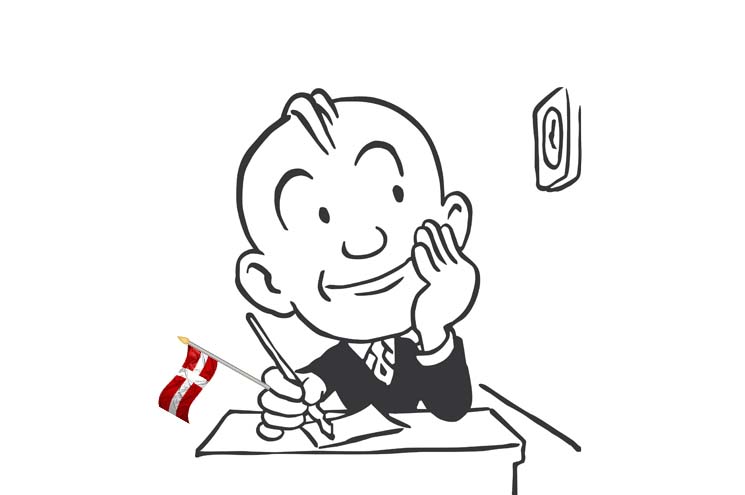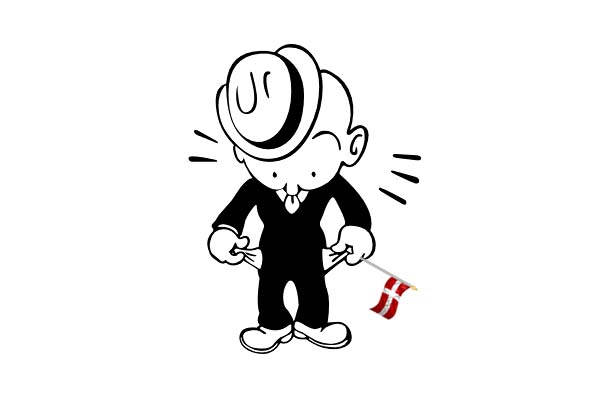As a keynote speaker, I’m often asked to give presentations that help Danish companies understand their American colleagues and vice-versa. One of the biggest cultural clashes between the two countries is the differing role of the boss. Here’s a look at the contrasts between Danish managers and American managers.
1. The motivator vs the consensus-seeker
American bosses see themselves as motivators, cheerleaders, energizing their team to get the best performance out of them. A great boss is inspiring and able to bring employees along on a journey that can boost their own careers. This is why Americans buy books and watch TV shows about charismatic business leaders – from Lee Iacocca to Donald Trump to Jay-Z to millennial “Girlboss” Sophia Amoruso. A boss is a star, and employees revolve around her like planets revolve around the sun.
There are few books about famous Danish bosses. Danes are, in general, suspicious of people who think too highly of themselves and make too much money.
And Danish bosses tend to be consensus-seekers who shy away from self-importance. Their idea is to hire good people and then let them work independently at their own initiative. A Danish boss preps her staff like the coach of a sports team, then steps back and lets them take the field.
To an American, a Danish boss may seem passive and directionless. To a Dane, a “charismatic” American boss may come across as flashy, flakey and a bit manipulative.
2. “Need to be in the loop” vs “Let me know if you need me.”
One of the top complaints I hear from Danish bosses working with Americans is the large number of “cc” emails they receive. “Why do they cc me on everything?” the Danes ask. “I don’t really need to know all this minor stuff.”
Some of those cc’s are no doubt cover-your-butt maneuvers (“I cc’d my boss about this, so if it all goes wrong it’s not my fault”) but the vast majority are because their previous American bosses really did want to know all this stuff.
American bosses are obsessed with staying “in the loop,” and feel the need to be on top of what’s going on in their teams at all times. This isn’t always because they love micro-managing: the fearsome U.S. legal machine requires they know everything about possible defects in their product, as well as any bias or harassment on their team.
By contrast, Danish bosses like their staff to work independently and get back to them when necessary. “If you don’t hear from me,” according to this approach, “then everything is fine.”
Unfortunately, this approach is often perceived by American employees as “You only call us when we’ve done something wrong.”
This is exacerbated by the fact that Danes are not great at making business small talk in the first place. In addition, many US-Danish collaborations involve Danish engineers with US marketing and sales teams, a personality mismatch on a very basic level. Sales types are generally outgoing, flamboyant, and chatty. Engineers of any nationality are not known for their entertaining party talk.
3. The celebrator of success vs the fault-finder
Since the 1980s, American schoolchildren have been flooded with efforts to improve their self-esteem: compliments, awards, prizes, trophies. Many of those children are now part of the workforce and expect their bosses to supply a constant stream of positive feedback and celebrations of success.
Danes, meanwhile, are frugal with compliments, which play havoc with their belief that everyone must be equal at all times. (They are, however, getting better at celebrating group success, usually with cake during working hours, or lots of alcohol afterward.)
Hit with an American boss’ enthusiasm and constant applause, Danish employees may feel patronized, like small children being encouraged to take their very first steps. (Good boy! Good girl!)
By contrast, Americans can be exasperated by Danish fault-finding. For generations, the top grade in Danish schools was the nearly unachievable 13, awarded only to a student who was able to use her superb intellect to point out the faults in her teacher’s arguments.
Although the system has recently been changed, many Danes still believe the ability to look at a project that is 98% correct and find the 2% that is wrong is the sign of an apt and gifted pupil.
For an American, it is the sign of a jerk.
4. “Put in the hours” booster vs respecter of family time
One of the reasons American bosses are so motivational is that they often want their workers to put in more effort and more hours than they are strictly being paid for.
This type of boss talks a good deal about hiring a team that is prepared to “go the extra mile”, which might mean working evenings, weekends, or holidays, and foregoing one’s annual two weeks of vacation.
Except for special peak periods, Danes don’t want to “go the extra mile.” They want to do their jobs and go home to their families, friends or hobbies. It’s a foolish manager in Denmark who schedules a meeting after 3 pm, when parents begin leaving work to pick up their children at the day-care center.
Most Danes use up every single day of the legally-required five weeks of vacation, plus twelve public holidays. Because so many of their staff are taking time off, smaller Danish companies often shut down entirely for the last two weeks of December and most of July.
These generous vacations are frustrating for American managers, who sometimes feel like their Danish colleagues are always out of the office.
The different attitudes toward working hours are a sign of the difference in the underlying power balance between a boss and the people who work for her. An American boss has a disquieting amount of power over her staff: an employee she fires can find herself without income, without health insurance, without the cultural identity that comes through work.
Danish bosses don’t have that power. The Danish social welfare state, financed by mammoth taxes on income and everything else, provides a soft pillow for employees to land on if they leave the company.
In Denmark, the threat of unemployment is much less effective. Danish bosses rely on a deep trust that their employees will perform.
5. Eye level vs. the authority figure
Danes love the expression øjenhøjde, which translates to “at eye level.” The more any communication can be at eye level – whether it is about politics, marketing, or management – the better.
Keeping things at eye level is an expression of the passion for equality that is so key to Danish culture.
Americans, by contrast, are passionate about success and have at least a grudging respect for anyone who has achieved it. (“I think his music is terrible, but hey – he’s sold millions of albums.”)
This is why Americans are much more interested in their business titles. An impressive-sounding title on your business card is a signal that you have, at least temporarily, won the meritocracy derby. Your parents can proudly mention your title when dining with friends, and you are presumed to have some sort of greater expertise or talent than the people working below you.
Americans, despite their rock ‘n’ roll image, tend to have more respect for authority than the anti-authoritarian Danes.
This has an impact on how employees deal with their managers.
A Danish employee expects an open-door policy that gives him the opportunity tell his boss – or his boss’s boss – what’s on his mind. If he disagrees with the manager’s strategy or point of view, he’ll speak up and say so – quite possibly in one of the consensus-building Danish meetings where everyone down to the summer intern gets to have their say.
Americans, by contrast, may not want to challenge the “corner office.”
This can be toxic when a Danish manager assumes that because his American team hasn’t objected to his plans, they agree with everything he’s doing.
It could be that they’re shaking their heads and thinking, “That’s the worst idea since serving lighter-fluid cocktails on the Hindenberg,” but adding silently, “Well, he’s the boss,” and carrying out the ill-conceived orders anyway.
Then, if the project doesn’t do well, the American team’s loyalty to its leader will evaporate quickly.
While Danes are raised to find humor and even solidarity in failure, Americans are taught to “go with a winner” and, given their lack of a social safety net, to quickly abandon a sinking ship.
But there’s little long-term stigma attached to failure, and even a certain glamor about a leader who has flopped again and again but finally come out on top, Abraham Lincoln style. If your next initiative is a success, the American employees will be back in your corner, with smiles on.
This article originally appeared on LinkedIn. Read it there, along with more than 400 comments on the piece.
Book an event
If you represent a company or organization and would like to have an American keynote speaker in Denmark make a presentation to your group, contact Kay via this site’s contact form for more information.
Alternately, you can read more about all of Kay’s events on the How to Live in Denmark events page.

Buy Kay Xander Mellish’s new book, Working with Danes: Tips for Americans/Working with Americans: Tips for Danes on our webshop, or at Amazon, Saxo, Google Books, Apple Books, Barnes & Noble Nook, or via our webshop.
Or follow Kay on LinkedIn.
Image mashup copyright Kay Xander Mellish 2025
Read also:
Working with Danes: Tips for Americans – Get the Book!
Motivating Danish employees: Tips for Foreign Managers
Tips for Danes working with Americans, and Americans working with Danes




